How to describe the song of a starling?
Ornithologist Bernard Tucker called it:
“a lively rambling medley of throaty warbling, chirping, clicking, and gurgling sounds, interspersed with musical whistles and pervaded by a peculiar creaking quality”
You might think of it as a bag full of random clockwork pieces, all whirring, wheezing and clicking.
And that's just the start of it, because starlings are excellent mimics. They can do a telephone ring, a human voice, a vehicle noise, and pretty much anything else.
‘I ran indoors but there was no-one calling.’
‘Why is someone whistling from our roof?’
‘Is that an ASDA truck reversing onto our front lawn?’
There are plenty of reported misunderstandings in which the punchline is provided by a starling.
They like to throw in other birds’ calls too, including those that we might not expect to hear from a suburban chimney.
During the day, many starlings go out to feed on pasture and grazing marsh. Here they sometimes pick up the sounds of wildfowl and wading birds, such as golden plover, wigeon or lapwing.
Helpfully, starlings do like to sit out high when they sing.
So whatever strange vocal brew they’ve concocted, there's usually a way of checking what's made the noise: look up.
Alongside the collared dove and the jackdaw, the starling is the bird most likely to be performing from a TV aerial, or the end of a roof gutter.
These days it is, of course, frowned upon in polite society to mention starlings without talking about murmuration, the visual spectacle for which they are famed.
In winter, starlings can gather in the air in their thousands (sometimes hundreds of thousands), creating extraordinary collective shapes that warp and twist, before they go into roost together.
Murmurations now tend to be associated with wilder places, or perhaps with the fringes of human settlements (such as seaside piers) but they were once a regular sight above the very centre of large cities too.
It's reported that the sound of a large murmuration in town could drown out the noise of traffic. This recording of a big group of starlings chattering away to each other pre-roost gives a taste of that.
But while still one of our more common birds, there are far fewer starlings in the UK than in the recent past. More than half disappeared between 1995 and 2020, with the starkest declines in our woodlands, many of which no longer have starlings breeding in them at all. Declines have taken place across much of northern Europe.
Globally they have been faring better, having been introduced by humans to many parts of the world away from their native European and southwest Asian range. They are now a familiar garden bird - and to some an unwelcome visitor - in places as scattered as Argentina, Australia, South Africa, Mexico and Canada.
Find out more about the starling’s ecology in Britain on the BTO website, and in the US at All About Birds.
A question of taste
Do birds taste food in the way that we do?
The European starling happens to be a bird for which there is some research on this. According to All About Birds:
In studies of starlings’ sense of taste, scientists have discovered that they can taste salt, sugars, citric acid, and tannins (bitter compounds that occur in many fruits, including acorns and grapes).
They can tell the difference between sucrose (table sugar) and other kinds of sugars – helpful since starlings lack the ability to digest sucrose.
This is the 14th instalment in 2025’s cycle of Shriek of the Week. You can catch up with Robin, which includes details of the plan for this year, as well as Wren, Song Thrush, Blackbird, Great Tit, Dunnock, Chaffinch, Goldcrest, Nuthatch, Chiffchaff, Skylark, Great Spotted Woodpecker and Blackcap.
For those who can, subscribing to the paid tier to Shriek of the Week supports me to write more and keep this all going.
It also gets you access to the full A-Z archive of Shriek of the Week AND our livestream-hopping Early Bird Club call - the next is 8am BST (GMT +1) on Saturday 3rd May
Project Basic Potato
Have you ever grown potatoes?
The Border Crossing’s Chris Thorpe-Tracy and I are both short on outdoor space, and expertise, but we’re attempting to grow our very own.
Here’s progress so far:
I’ve put three seed potatoes in this bag and filled it will compost from Tesco. It’s on the path in front of our house, which gets sun most of the day. The potatoes came from Seedy Saturday in Lewes, but I can’t remember the variety. Will they be waxy? Floury? An abundant cropper? Will they grow at all?
All I know is that I hope to eat something from this bag, in the summer.
If you grow potatoes, in a bag or otherwise, advice or progress reports welcome.
🌳 Are you a communicator working for climate, nature recovery or community resilience? Join 250 others determined to rise to the challenges of our times at Content Rising, a gathering at the Millennium Seedbank, Kew Wakehurst in Sussex, this June.
Media credits:
Image by The Other Kev
Murmuration film by Jan van IJken


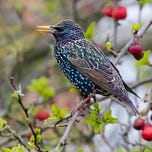






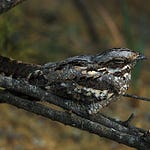
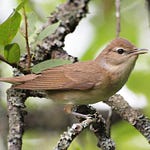

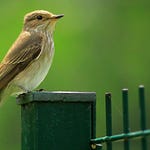


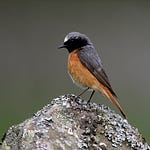
Share this post